This article was co-authored by Tasha Rube, LMSW. Tasha Rube is a Licensed Social Worker based in Kansas City, Kansas. Tasha is affiliated with the Dwight D. Eisenhower VA Medical Center in Leavenworth, Kansas. She received her Masters of Social Work (MSW) from the University of Missouri in 2014.
There are 10 references cited in this article, which can be found at the bottom of the page.
This article has been viewed 31,457 times.
Factitious disorder, also called Munchausen syndrome, involves pretending or intentionally producing symptoms of a physical or psychological disorder.[1] Although it can manifest as a mental disorder, it is more often experienced through physical symptoms. Understanding factitious disorder is difficult as it’s never easy to parse out the actual cause of problems, and medical doctors often have no explanation for symptoms or behavior.
Steps
Understanding Contributing Factors
-
1Know who it affects. Both men and women can have factitious disorder. It typically affects adults. Women may have a background in healthcare, such as being a nurse or technician. Women with factitious disorder tend to be between the ages of 20-40. Men tend to be unmarried between the ages of 30-50.[2]
-
2Recognize the motivation. Often, people with factitious disorder seek attention through the illness. These people take on a “sick role” to receive care from others.[3] The core of factitious disorder is receiving attention from others.
- Any practical benefit from pretending to be sick (like skipping work or school) is not the motivation.
Advertisement -
3Note identity problems or self-esteem issues. People who show symptoms of factitious disorder tend to have low self-esteem and/or problems with self identity.[4] The person may have a convoluted personal or family history, or an inconsistent story. They may have interpersonal problems or family problems. This person may have a low view of the self or a difficult time identifying to the self.
-
4Identify links related to other disorders. Symptoms of factitious disorder may follow or coexist along with someone who has factitious disorder imposed on another, or FDIA (formerly known as Munchausen syndrome by proxy, or MSBP). FDIA can occur when a parent places a child into a ‘sick’ role, and factitious disorder may occur if the child takes on the role of ‘sick child’. Some psychological disorders may be associated with factitious disorder, such as having borderline or antisocial personality symptoms.[5]
- There appears to be some link between factitious disorder and having a history of abuse, neglect or other maltreatment.
- There are no direct links between certain disorders and factitious disorder.
Identifying Behavioral Patterns
-
1Identify common behaviors. Someone with factitious disorder may tamper with blood or urine samples, inflict wounds on oneself, or otherwise deceive medical teams with illness.[6] Individuals may have an extended medical history with inconsistent details throughout.
- The most common physical complaints include belly pain, nausea/vomiting, difficulty breathing, and blacking out.[7]
-
2Discern whether the person actively tries to get ill.[8] A person may try to purposefully infect a wound, go to crowded places in order to pick up a cold or virus, or increase risk of getting an infection. Other behaviors may include purposefully eating or drinking from containers that a sick person has used.
- The point of these behaviors is to get sick so the person can receive treatment and medical attention.
-
3Note complaints of difficult to measure symptoms. The individual may complain of persistent problems that are difficult to measure, such as chronic diarrhea or stomach ache. Upon testing or medical examination, no symptoms are found to be present. [9]
- Other symptoms difficult to measure may include chest pains or difficulty breathing, and feeling faint or dizzy.
-
4Note events when symptoms are present. The individual may report symptoms only when in the presence of other people. The symptoms may not appear when the person is alone or when nobody is around. The symptoms may also only appear when the person is being observed, either in a medical setting or by family or friends.[10]
- Ask the person when the symptoms are present. Do the symptoms worsen when near family or friends? Does treatment appear to go well until a family member is present? Also, is the person hesitant to include family in treatment?
-
5Examine eagerness to undergo exams and medical tests.[11] Those with factitious disorder may appear overly eager to receive medical tests, procedures, or operations. They may request certain tests or insist on being tested for specific disorders or diseases.
- They may appear happy or gleeful when a medical doctor recommends testing or treatment. Note that people without factitious disorder may feel relief at finally getting help, but this is because they want to get better, not because they enjoy the role of being sick.
-
6Observe comfort level in a medical setting. Someone with factitious disorder may have an extensive knowledge of medical treatment, disorders, medical terminology, and descriptions of illness.[12] The person may appear at ease in a medical setting and even comfortable receiving medical care.
Observing Behavior Following Treatment or Examination
-
1Observe seeking help from multiple sources.[13] Someone may receive negative tests from one medical facility and choose to go to another facility or several others in order to get a positive response. Or, a person may go to several medical centers in order to have a diagnosis confirmed several times over. Generally, the pattern of behavior seeks to affirm the presence of an illness.
-
2Detect hesitance for medical professionals to contact previous treatment teams. Factitious disorder often includes a long medical history, yet the person may hesitate for current treatment teams to contact previous treatment teams.[14] The person may fear the truth being told or suspicions being raised. For this reason, they may deny past medical treatment, or refuse to share medical information.
- The person may hesitate for hospitals to call family or friends to confirm symptoms or medical history.
-
3Monitor if problems worsen after treatment. If an individual receives treatment and then the symptoms worsen, it can be indicative of factitious disorder.[15] The person may come back after treatment and say that symptoms have worsened for no apparent reason. There may be no apparent medical cause for the symptoms.
- Additional symptoms may spontaneously appear after treatment that appear unrelated to the symptoms being treated.
-
4Note new problems after negative tests. If a person with factitious disorder receives medical tests and the results turn up negative, the individual may suddenly develop different or worsening of symptoms.[16] The person may request more testing or more thorough testing, or may choose to receive tests from another medical center.
- The symptoms after a negative test may be unexplained or unrelated to what the individual was originally tested for.
Ruling Out Factitious Disorder From Other Disorders
-
1Rule out depression. Symptoms of depression can include unexplained aches and pains or bodily discomfort. Other symptoms can include headaches, back pain, and stomach pain.[17] While these symptoms often do not have a medical cause, they can be symptoms of depression.
- While symptoms may be medically unexplained, it’s important to look into the motivation of the pains or discomfort. These aches and pains may be manifestations of the feelings of depression, and the individual may show other symptoms of depression, such as low mood or energy, changes in appetite or sleep, and difficulty concentrating. If it appears to be attention-seeking behavior, it may be factitious disorder.
- For more information on depression, check out How to Tell if You Are Depressed.
-
2Parse out symptoms of obsessive compulsive disorder (OCD). Obsessive compulsive disorder can include unexplained medical symptoms, such as being convinced one is dying or suffering a heart attack or another severe disorder. A person may become obsessed with the idea that they are sick and needs treatment, and may demand medical tests and treatment. These obsessive thoughts may also have a compulsive component, like ritualistic cleansing or showering, repeatedly undergoing tests, or praying excessively.[18]
- A person with OCD actively wants to get rid of the perceived medical disorder, which causes extreme stress. Like people with factitious disorder, they may be adamant that they are suffering from an illness or disease, and may be frustrated when medical professionals do not take the symptoms seriously. Unlike people diagnosed with factitious disorder, they want the symptoms to go away and do not perceive positive reinforcement from being medically treated.
- For more information on OCD, check out How to Know if You Have OCD.
-
3Address anxiety. Some symptoms of anxiety can manifest physically, such as shallow breathing/shortness of breath, stomach upset, dizziness, muscle tension, headaches, sweating, tremors or twitches, and frequent urination. While these symptoms are a manifestation of anxiety, they can be confused with having a medical origin.[19] People with anxiety may jump to negative conclusions and catastrophize situations. What may be a small medical problem (or no problem at all) may be perceived as a medical emergency. A perceived medical emergency may cause extreme tension, worry, and distress in the person. They may feel frustrated that medical practitioners are not taking the symptoms seriously and request further testing or go to another medical doctor.
- In people with anxiety, these symptoms cause distress and discomfort. They want the symptoms to go away and not persist, unlike those with factitious disorder.
- For more information on anxiety, check out How to Recognize Anxiety in Yourself, How to Stop Anxiety, and How to Cope With Panic Attacks.
-
4Consider the possibility of hypochondria, also known as Illness Anxiety Disorder. Illness Anxiety Disorder is a fear-based disorder, in which a person seeks medical help for minor or imagined symptoms because they are afraid that they are extremely ill. The symptoms they worry about usually vary from day to day or week to week. It is characterized by extreme fear of illness, not enjoyment of illness, and a person with this disorder wants their symptoms to go away.
-
5Consult a mental health professional. If a diagnosis is unclear, it’s best to see a mental health professional such as a psychologist, psychiatrist, licensed clinical practitioner, or clinical therapist such as a social worker. A mental health professional can diagnose and treat factitious disorder, as well as rule out and/or treat other diagnoses, such as depression, anxiety, or other disorders.[20]
- It’s best to see a mental health professional instead of a physician for a proper diagnosis of factitious disorder, as it is psychological in nature.
References
- ↑ http://www.medicinenet.com/munchausen_syndrome/article.htm
- ↑ http://www.nhs.uk/conditions/Munchausens-syndrome/pages/introduction.aspx
- ↑ http://www.nhs.uk/conditions/Munchausens-syndrome/pages/introduction.aspx
- ↑ https://my.clevelandclinic.org/health/diseases_conditions/hic_An_Overview_of_Factitious_Disorders/hic_Munchausen_Syndrome
- ↑ http://www.medicinenet.com/munchausen_syndrome/article.htm
- ↑ http://www.nhs.uk/conditions/Munchausens-syndrome/pages/introduction.aspx
- ↑ http://www.medicinenet.com/munchausen_syndrome/page4.htm#what_are_munchausen_syndrome_symptoms_and_signs
- ↑ http://www.nhs.uk/conditions/Munchausens-syndrome/pages/introduction.aspx
- ↑ http://www.nhs.uk/conditions/Munchausens-syndrome/pages/introduction.aspx
- ↑ http://www.webmd.com/mental-health/munchausen-syndrome
- ↑ https://my.clevelandclinic.org/health/diseases_conditions/hic_An_Overview_of_Factitious_Disorders/hic_Munchausen_Syndrome
- ↑ https://my.clevelandclinic.org/health/diseases/9833-munchausen-syndrome-factitious-disorder-imposed-on-self
- ↑ http://www.emedicinehealth.com/munchausen_syndrome/page3_em.htm#munchausen_syndrome_symptoms_and_signs
- ↑ https://my.clevelandclinic.org/health/diseases_conditions/hic_An_Overview_of_Factitious_Disorders/hic_Munchausen_Syndrome
- ↑ http://www.emedicinehealth.com/munchausen_syndrome/page3_em.htm#munchausen_syndrome_symptoms_and_signs
- ↑ https://my.clevelandclinic.org/health/diseases_conditions/hic_An_Overview_of_Factitious_Disorders/hic_Munchausen_Syndrome
- ↑ http://www.helpguide.org/articles/depression/depression-signs-and-symptoms.htm
- ↑ http://www.helpguide.org/articles/anxiety/obssessive-compulsive-disorder-ocd.htm
- ↑ http://www.helpguide.org/articles/anxiety/anxiety-attacks-and-anxiety-disorders.htm
- ↑ https://my.clevelandclinic.org/health/diseases_conditions/hic_An_Overview_of_Factitious_Disorders/hic_Munchausen_Syndrome

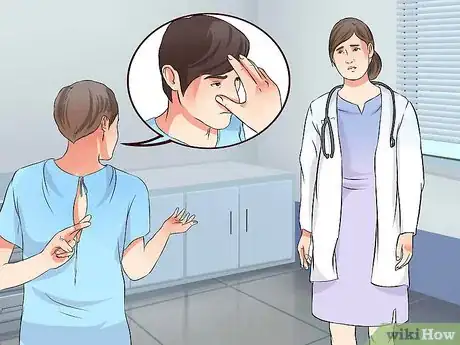


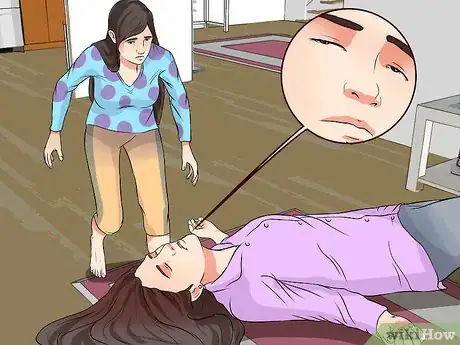



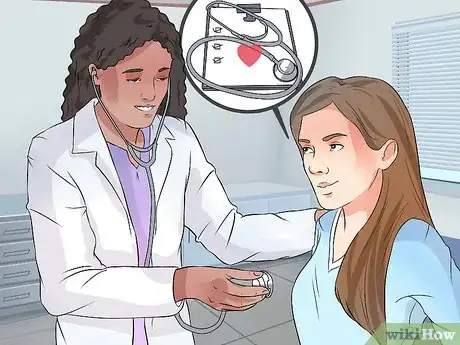

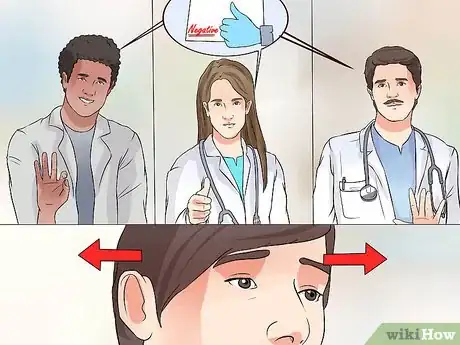

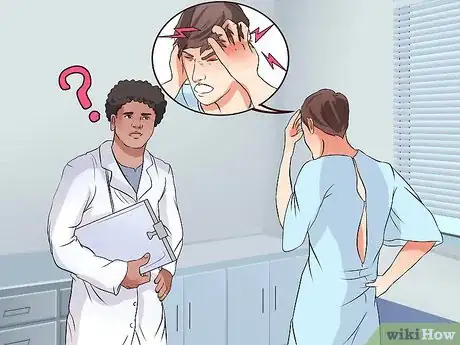
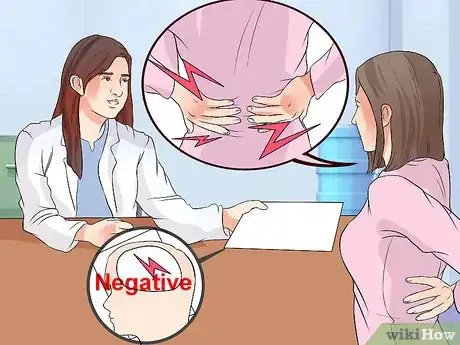

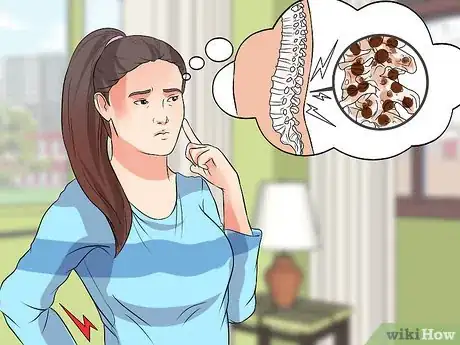
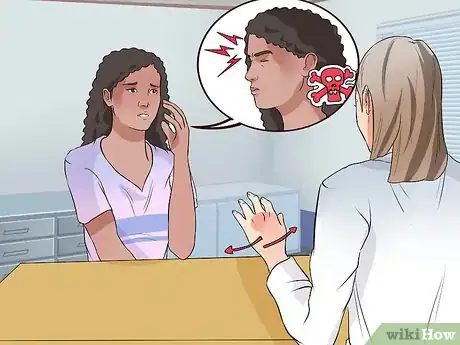

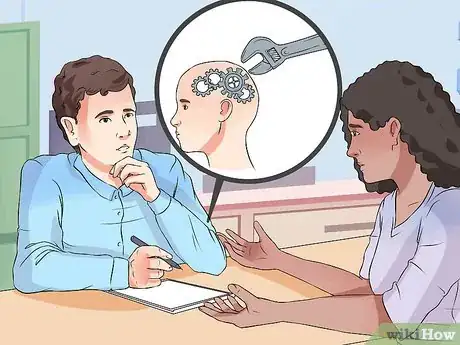













-Step-17-Version-2.webp)










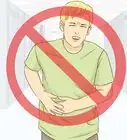



































Medical Disclaimer
The content of this article is not intended to be a substitute for professional medical advice, examination, diagnosis, or treatment. You should always contact your doctor or other qualified healthcare professional before starting, changing, or stopping any kind of health treatment.
Read More...